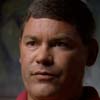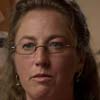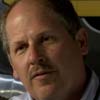The first thing you need to know -- it's going to take years!
In 2001, an industrial stretch of Seattle's Duwamish River was declared a Superfund site -- but the big cleanup has yet to begin. Here's more...
- RELATED LINKS
- Primer: Legacy Pollutants
Some of these chemicals were banned decades ago. Yet they're still building up in our waters and fish. Here's why... - A River Lost? Decision Time on the Duwamish
This three-part series from the Seattle Post-Intelligencer explores the history of the river and the controversy over its cleanup. Multimedia features include photos of the river and an audio slideshow (Nov. 25-27, 2009) - Duwamish River Cleanup Coalition
This community group has posted a wealth of information, including FAQs, an explanation of the Superfund process and news articles - EPA: Lower Duwamish Waterway Questions and Answers
With its investigation of the contamination on the Duwamish now complete, the EPA has answers to some frequently asked questions about the cleanup, including guidelines on which river fish are safe to eat. - Jay Manning
- Steve Tochko
- Shawn Blocker
- B.J. Cummings
- Chris Gregoire
Jay Manning
Director, Washington State Department of Ecology
Here we are eight years after the lower Duwamish River was declared a Superfund site, and the big cleanup hasn't begun. Why?
It's a very fair question, but let's think about the challenge here in front of us. The big cleanup that I presume you are referring to -- the cleanup of sediments in the river and in the slips around the river -- you don't do that until you control the sources that are contaminating the sediments. Otherwise you are going to clean it up again and again and again. …
Figuring out who are the sources and how do you get them to clean up their contribution, it's significantly difficult. Then you get into -- I presume you're going to ask me about Slip 4, and that's a great example of the technological challenge, which really adds to the difficulty here.
What is the nut of the problem at Slip 4?
Slip 4 is a docking berth in the Duwamish, and it has a variety of sources, property surrounding it, that drain into it. These are not industrial pipelines; this is stormwater. It rains a lot in Western Washington. That water has to go somewhere. It runs across the ground and into drains and pipes and ultimately into Slip 4.
PCBs are the big problem contaminant. There are other problem contaminants, but PCB is the big one, and figuring out where are these PCBs coming from into Slip 4 is a formidable technological challenge. You have various parties who, under the Superfund, are jointly and severally and strictly liable for the cost of cleanup, which means you contribute a molecule, you are liable for the whole shooting match. Whether you did anything wrong or not doesn't matter. It's strict liability: You contribute, you pay.
So these folks, who are not stupid, are busy trying to prove that it's somebody other than them that is --
Pointing the finger at everybody else.
That's right. And they have lots of fertile hydrogeologic and geologic and chemical arguments to make, and they bring sophisticated people in to make those arguments. And they are trying to prove probably not that they have no liability, because that's pretty hard to do, but proving that they have very little compared to their neighbor. That's what it's about, and it's about money. ...
Now, I will say this in defense of Superfund: It's the most powerful statutory program we have, and it has worked wonders. It gets maligned all the time because things take a long time. These are sites that took 100 years to make, and we're cleaning them up in less than a decade in most cases. Some of them are huge and tremendously complicated, and without the power of Superfund, we couldn't clean them up. So I'm going to sit here and staunchly defend Superfund and its state counterpart, because we have done amazing things with it. Could it be better? Heck, yes.
Steve Tochko
Boeing Environmental Officer
If it was up to Boeing and up to me as an individual, we would be out cleaning the river today. But just to give you an example, it's going to take 14 to 18 months to get a permit to dredge the Duwamish River. We're going to start that process in January, and hopefully we'll be dredging by next time you come up here. ...
You make it sound as though there is quite a lot of back-and-forth between Boeing and the EPA about whether or not whatever plan you have submitted is sufficient. ...
And that is the classic dilemma of environmental regulations in America, is how clean is clean? It's a very difficult concept. There are numerical cleanup levels, but then there is risk-based cleanup levels and there's political cleanup levels, and it's very hard to figure out what is going to be acceptable to the community, what is going to be the best thing for all parties. …
What happens if the EPA and Boeing and the city and the county and the port can't agree on a standard?
The framework in the U.S. law is that there is a deference given to the scientists from the Environmental Protection Agency and that at some point there will be a mediated dispute and it will be resolved.
… So what you're saying is, ... when all is said and done, the EPA scientists are going to be the ones that are going to call the shots.
That's pretty much the case -- or a federal judge. And a lot of these things are resolved in judicial proceedings. ... We hope to not get there. That's not where we want to be. We want to try to tell people that we are doing the best we can. We're making a reasonable or even what I would consider a better than reasonable attempt to restore the river to a better condition.
I don't think it's reasonable to expect that Boeing as an industry or even King County as the government or the city of Seattle or the Port of Seattle can be the ones that [are] going to suddenly restore the river. I think it's more a community-wide thing. I think [if] people want to see waterways restored like this, there are other things that have to take place. We have to change the way we develop.
Shawn Blocker
EPA Boeing Site Manager

When you're setting your standard of how clean is clean, what's the yardstick?
The yardstick is, what's the most sensitive thing out there? What can be affected by the contaminants the most that come off of the facility? ... And what we determined was that the most sensitive population we had out there were our Native Americans that eat the fish out of the Duwamish.
And they eat a lot more fish than most of us.
They do.
And so that was the standard you wanted to set: Clean it up so the tribes can eat the fish safely.
Yes.
And Boeing objected to that?
They have objected in the sense that they do not feel that's an appropriate population for doing the calculation, that it is a limited number and that basically they don't feel that that stretch of the river can ever be returned to where you could harvest these kind of fish and shellfish. We disagree with that. ...
... What's your response to Boeing's picture of itself as a good-citizen company that's done the right thing all along, once it found out that there were pollutants there?
I would agree that Boeing has done a lot on the Duwamish. ... Have they done enough? They will. We are going to get there.
Has Boeing taken the positive actions all on its own, or has it had to be pushed?
In some instances, Boeing needed to be nudged a little toward what we thought we needed to get to. And it comes down to really a difference of opinion of what they think clean is and what EPA thinks clean is. So from Boeing's perspective, they have done a lot. They've done all this investigation. And they've done it to a threshold that they thought was what was going to be required of them, and it's not necessarily reflective of where EPA thinks they need to be.
B.J. Cummings
Duwamish River Cleanup Coalition

When the Superfund law was first passed, it did not outwardly involve affected communities very well at all. In 1980, when there were revisions passed to the Superfund law, one of the major revisions was to actually require EPA to provide funds to affected communities so that they could engage in the process and so that they could have some scientific, technical assistance for understanding what the heck was going on.
Today, the Duwamish River Cleanup Coalition and the groups we represent serve as a formal community advisory group to EPA for the Superfund cleanup here. And we also receive funds through EPA's Technical Assistance Grant Program so that we can hire independent consultants and scientists who work directly for the community, reviewing and overseeing the cleanup plans.
So the Superfund law opened a channel for citizen engagement.
Yes. The Superfund law now allows citizens to not only participate but to actually have some resources and expertise to do so. ...
... [It's been a] Superfund site eight years already. Why does it take so long to clean up?
Trying to clean up the Duwamish River before we've actually turned off the sources of pollution is really challenging. I'm not sure it's possible. So what we're looking at today is eight years into a site listing when cleanup should have started several years back, it has been stymied repeatedly by finding that we've got ongoing sources of the same toxic chemicals that we're trying to clean up in the river continuing to come in.
We want to protect our investment in cleanup. We don't want to clean up a river that we're going to have to come back and do again in 20 years. Now, that does not mean we want to slow down; nobody's interested in slowing down this cleanup. But if we want to make it successful, we're going to have to speed up controlling those sources of pollution. That's absolutely essential. ...
... So the problem which looks as though it's starting in the river, in the sediment, at the bottom of the river, turns out really to be in the soil, in the storm drains, upland.
It's possible that the entire Duwamish River Valley should be listed as a Superfund site. We're getting to the point where we think that that might really be the situation we're dealing with.
Chris Gregoire
Governor, Washington State

We should be discouraged about the process and how much time it takes.
... All that well-intentioned process is not bringing about timely results. Meanwhile, we're letting the Duwamish, for example, deteriorate even more. So there's a lesson to be learned there, and I hope the next administration will step up to that.
Meanwhile, however, good progress is being made at the Duwamish, really good progress, and as painful as it has been and how much time it has taken, I'm really very optimistic that we're going to get some very good results and we're on the right track to move this thing forward. But it took too long.
... How clean is clean? Do we need to get rivers back to where people can fish and safely eat the fish without fear to their health?
That is the goal. That has to be the goal, because every one of those rivers and streams are going into Puget Sound. So it's not as though it's that river or that stream alone; it's about the whole ecosystem.

